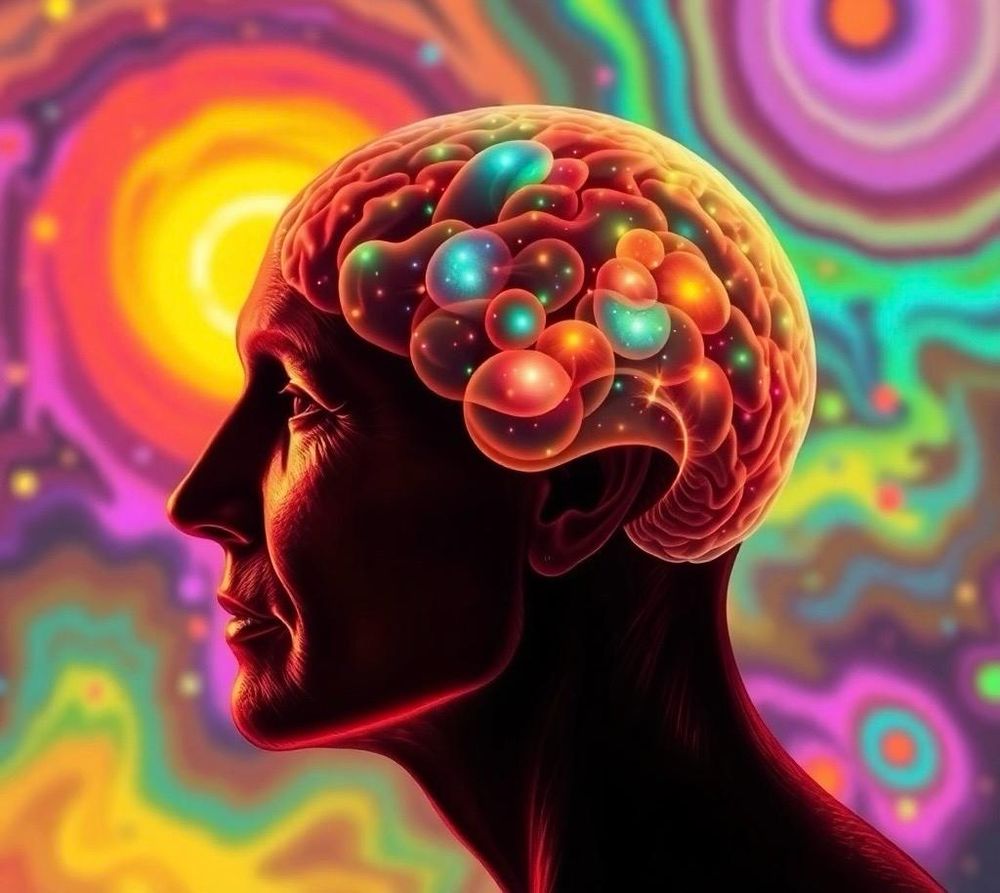Psilocybin and LSD for Dementia: What the Science Really Says
Marco Aurélio Gomes Veado
3 min read
•
September 22, 2025
The resurgence in psychedelic research has sparked curiosity: could classic psychedelics such as LSD or psilocybin offer hope in treating or modifying dementia?
While early findings are intriguing, it's important to separate scientific evidence from speculation. This MCI and Beyond's blog post examines current research, potential benefits, risks, and the path ahead.

What researches exist on LSD and Psilocybin?
Preclinical and early-stage evidence suggests that psychedelics may play a role in promoting neuroplasticity, neurogenesis, and reducing neuroinflammation mechanisms highly relevant to Alzheimer's Disease (AD) and other dementias.
- A 2020 mini-review notes that, amid a lack of disease-modifying dementia treatments, psychedelics like LSD and psilocybin may stimulate neurogenesis, provoke neuroplastic changes, and reduce neuroinflammation.
- Recent reviews (2024–2025) point to classic psychedelics’ ability to modulate serotonin/glutamate systems, enhance neuroplasticity, and support synaptic remodeling (PubMed).
- Specifically, psilocin may enhance neuroplasticity, lower inflammation, and improve cognitive flexibility, potentially alleviating anxiety and depression symptoms in AD patients.
Emerging Clinical Developments on Psilocybin and LSD for Dementia Treatment
While most evidence is preclinical or theoretical, a few developments are worth noting:
- A pilot clinical trial explores psilocybin’s effects on depression and quality of life in individuals with MCI or early Alzheimer’s, with follow-up extending up to six months (trialstoday.org).
- The Beckley Foundation is conducting exploratory work on LSD microdosing for Alzheimer’s, including a case of apparent cognitive “revival” in a 97-year-old dementia patient after microdosing (The Beckley Foundation).
After all, what are the Potential Benefits of treating Dementia with Psilocybin and LSD?
- Enhanced neuroplasticity and neurogenesis: Clinical and animal data suggest psychedelics may stimulate the brain’s capacity for adaptation and new neuron formation.
- Improved mood and cognition: Psilocybin has demonstrated antidepressant and anxiety-reducing effects, potentially benefiting dementia patients who often experience neuropsychiatric symptoms.
- Longevity of effects: Even a single psilocybin dose may induce lasting brain network changes lasting weeks.
Legal Concerns and Risks About LSD and Psilocybin Dementia Treatment
- A large-scale study found that individuals with psychedelic-related ER visits, including LSD or psilocybin, had a significantly elevated schizophrenia risk.
- Ethical issues arise around administering psychedelics to cognitively impaired individuals who may be unable to provide informed consent.
- In many jurisdictions, psilocybin and LSD remain illegal, and clinical use typically requires stringent regulatory approval and oversight.
Conclusion
We believe that until robust clinical trials confirm safety and efficacy, these substances remain research curiosities with no definite cures so far. Nevertheless, continued investment in rigorous science, ethical oversight, and public discourse is essential to moving forward.
It's vital to remain open-minded about innovative approaches like this, while prioritizing safety and evidence.
Learn more about the Psychedelic Dementia Review by Vann Jones & O’Kelly.
Disclaimers: “This article is for educational and informational purposes only and is not medical advice. Always consult a qualified healthcare professional before considering any treatment.”
Please subscribe to our Biweekly Newsletter and follow MCI and Beyond for science-based insights, and share to spread awareness.
#DementiaTreatment #Psychedelics #LSD #Psilocybin #Neuroplasticity #AlzheimersResearch #MentalHealth #Microdosing #ClinicalTrials #CBDementia
Sign up for our newsletter!
Get the latest information and inspirational stories for caregivers, delivered directly to your inbox.

